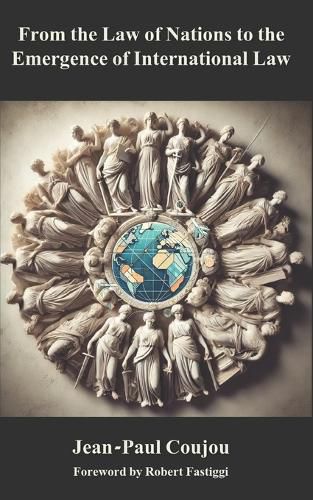Readings Newsletter
Become a Readings Member to make your shopping experience even easier.
Sign in or sign up for free!
You’re not far away from qualifying for FREE standard shipping within Australia
You’ve qualified for FREE standard shipping within Australia
The cart is loading…






In this book, Jean-Paul Coujou explores the historical evolution of international law from antiquity through modernity. He traces the development of the law of nations (ius gentium), beginning with Greek and Roman contributions, and examines its synthesis with natural law in Christian and Scholastic traditions. Coujou highlights the role of thinkers like Francisco de Vitoria, who transitioned the concept from individual relationships to the framework of international relations among states.
This work underscores the historical necessity of reconciling natural law's universality with the practicalities of positive law, shaped by human consent and custom. The narrative also incorporates the emergence of foundational principles such as human rights, justice, and mutual assistance among nations, demonstrating how international law has been influenced by theological, legal, and philosophical ideas, particularly during the Second Scholastic period, with contributions from figures like Suarez and Aquinas.
In this manner, Coujou provides a broader understanding of humanity as a universal community governed by shared legal and moral principles. He ultimately argues that international law serves as a mechanism for civilization, fostering unity, justice, and the moral improvement of humanity through cooperative legal development.
$9.00 standard shipping within Australia
FREE standard shipping within Australia for orders over $100.00
Express & International shipping calculated at checkout
In this book, Jean-Paul Coujou explores the historical evolution of international law from antiquity through modernity. He traces the development of the law of nations (ius gentium), beginning with Greek and Roman contributions, and examines its synthesis with natural law in Christian and Scholastic traditions. Coujou highlights the role of thinkers like Francisco de Vitoria, who transitioned the concept from individual relationships to the framework of international relations among states.
This work underscores the historical necessity of reconciling natural law's universality with the practicalities of positive law, shaped by human consent and custom. The narrative also incorporates the emergence of foundational principles such as human rights, justice, and mutual assistance among nations, demonstrating how international law has been influenced by theological, legal, and philosophical ideas, particularly during the Second Scholastic period, with contributions from figures like Suarez and Aquinas.
In this manner, Coujou provides a broader understanding of humanity as a universal community governed by shared legal and moral principles. He ultimately argues that international law serves as a mechanism for civilization, fostering unity, justice, and the moral improvement of humanity through cooperative legal development.